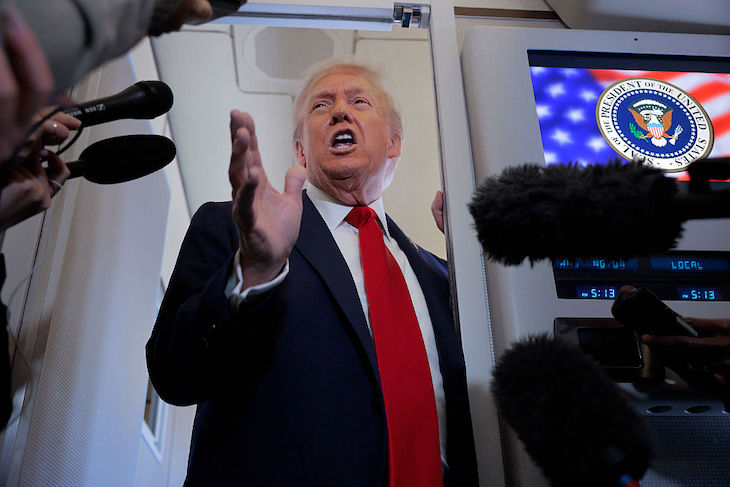The Prime Minister is in Egypt today at a peace summit aimed at ending the Gaza war. The question of whether he deserves any credit for the ceasefire is a contentious one. Some within Labour will claim that British recognition of a Palestinian state proved to Israel that it was alienating its allies. British officials argue that this country has performed some useful functions in the conflict.
After the felling of Powell’s close friend Peter Mandelson, the Tories clearly smell blood
Operational intelligence gathering and hostage negotiations are two examples cited by Whitehall staff. Britain’s longstanding relationships with key Gulf States like Jordan and Saudi Arabia is credited with helping secure agreement on Donald Trump’s 20-point plan and move it forward from phase one to phase two. Next week, Jordan’s Abdullah II will visit the UK: the Foreign Office believe that such ties are key to encouraging the Gulf States to contribute towards collective security.
Influence, though, is not the same as power. Clearly, it is Trump and the Americans who have made much of the running on this ceasefire. With ministers unwilling to publicly divulge many details, it is doubtful whether the UK has really played ‘a key role behind the scenes in shaping this’ outcome – as Bridget Phillipson, the Education Secretary, claimed on Sunday. Predictably, a backlash ensued, with Mike Huckabee, the U.S Ambassador to Israel calling her ‘delusional.’
This morning, Steve Witkoff – the United States Special Envoy to the Middle East – has sought to correct the online mockery. Writing on X, he wrote a fulsome and timely statement praising ‘the vital role of the United Kingdom in assisting and coordinating efforts that have led us to this historic day in Israel. In particular, I want to recognise the incredible input and tireless efforts of National Security Advisor Jonathan Powell.’ It is worth noting that Powell provided a similar on-the-record statement of support when Witkoff was under fire back in August.
Powell is, indeed, expected to be a feature of the day’s headlines – though not for the reasons he might like. As all eyes this morning are trained on the hostage releases in the Middle East, attention in Westminster this afternoon will turn to the question of the collapsed China spy case. Powell’s role has been under intense scrutiny since it emerged that the sudden abandonment of the prosecution in September appeared to be because Starmer’s government was unwilling to say that China posed a threat to UK national security. Powell would appear to be central to this decision.
The current government line is that Powell had no role in the ‘substance or the evidence’ of the case – a formulation which smacks of legalese. They insist that the government’s hands in the prosecution were tied by case law changing, and the fact that China was not previously classified as a threat. As some ministers have pointed out to Bloomberg, this means that there is no room for manoeuvre in No. 10’s position that would allow for the emergence of any political intervention.
Powell is an experienced Whitehall operator. If he did, as critics allege, play some role in the collapse of this case, the question will then become whether there is a paper trail to prove it. After the felling of Powell’s close friend Peter Mandelson, the Tories clearly smell blood and will be pushing for an Urgent Question to demand answers later today. Even if they do not secure a scalp, they hope to embarrass the government and highlight its confusion with regards to Beijing.
From the bargaining over a new ‘mega-embassy’ to the British Steel debacle, it is clear that the UK-China relationship is fraught with difficulty for No. 10. Chancellor Rachel Reeves’ trip in January drummed up a paltry £600 million of investment; Britain’s longstanding trade deficit remains grossly skewed. With evidence of Chinese state malpractice totting up, it will become increasingly hard to justify Starmer’s pivot towards a softer stance on China.
For much of his first year in charge, international affairs offered Keir Starmer a relief from difficulties at home. But when the line between the foreign and the domestic becomes increasingly blurred, as on China, such escape looks impossible.








Comments